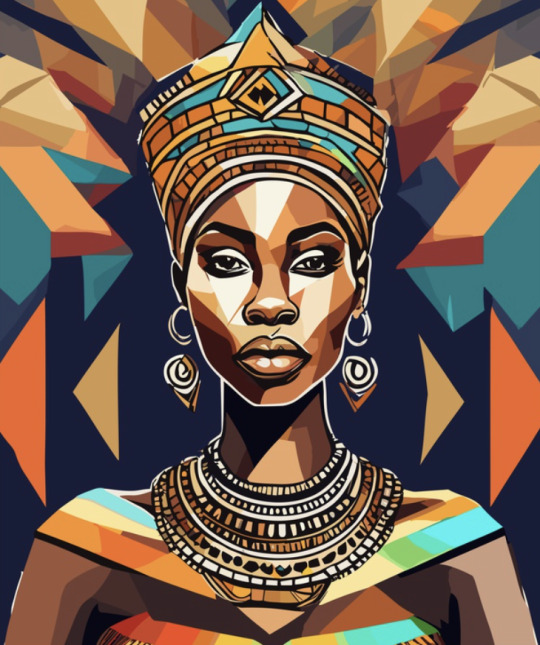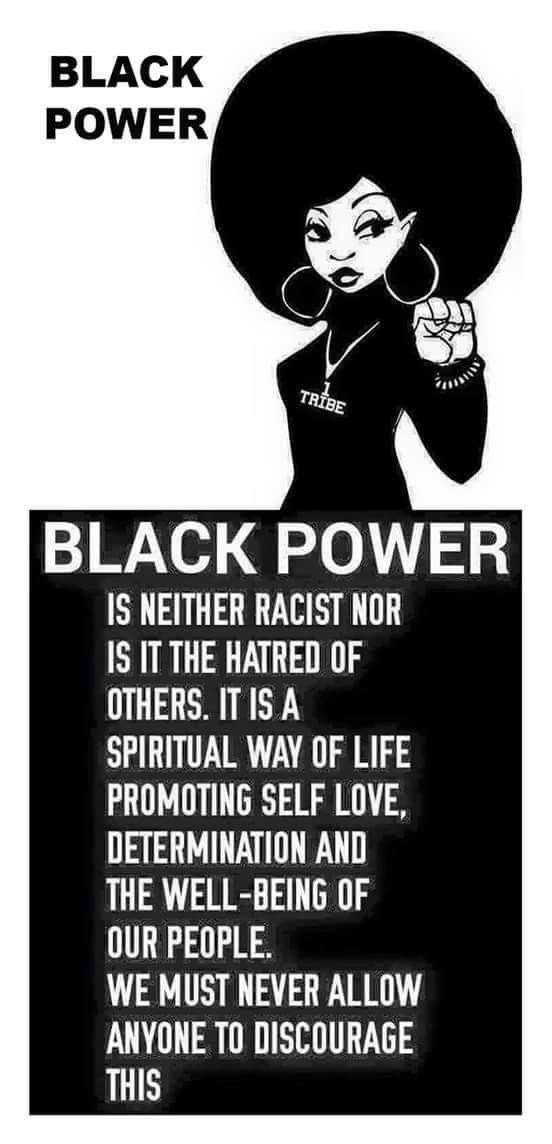#African powers
Explore tagged Tumblr posts
Text
Remember even in the darkest times you are never alone
The spirits, your ancestors, and the Orishas themselves walk beside you
With them by your side nothing can block your path for long
Ashe
#Orisha#African powers#Santeria#Ifa#Yoruba#yoruba religion#Ellegua#Obatala#ogun#Shango#Oba#Oya#Yemaya#Oshun#Olokun#Babaluaye#Ashe#Ancestors#400+1#Cuban#Mexican#Protectors#Olodumare#haitian vodou#Loa
96 notes
·
View notes
Text
#hoodoo#voodoo#african spirituality#spiritual#spirituality#black power#knowledge#black knowledge#african#black magic
7K notes
·
View notes
Text

IG: Vaanessamk
#black#black people#melanin#melanin poppin#black girl#black power#retro anime#aesthetic#blackgirlmagic#luxury#african girl#african girls#diamond#diamonds#hiphop#curvy girls#blackqueen#black women#black tumblr#black beauty#90s anime#white dress#black girl magic#luxurious#classy#makeup#old money
2K notes
·
View notes
Text







#you scared go to church#hoodoo#conjure#rootwork#roots#voodoo#beauty#black power#black people#orishas#witchy#black spirituality#african traditional religions#level up#black history#black women#black men#melanin#black magic#gentillmatic#black tumblr#black beauty#black experience#spiritual awakening#spirituality#folk magic#plant based#ifa#obeah
471 notes
·
View notes
Text

#black is beautiful#black is gold#black is divine#black king#melanin#black men#blacknificent#dark skin men are beautiful#handsome man#beautiful#fitness#black excellence#male beauty#african men#black power#beautiful people#fine black men#muscular#black guys#black beauty
703 notes
·
View notes
Photo

"African woman" by Judith Scholtz on INPRNT
#art#print#illustration#artist#judith scholtz#beautiful#geometric#cubism#artistic#black woman#artsy#african american#girl power#african woman#black pride#african queen#inprnt
2K notes
·
View notes
Text
African poverty is partly a consequence of energy poverty. In every other continent the vast majority of people have access to electricity. In Africa 600m people, 43% of the total, cannot readily light their homes or charge their phones. And those who nominally have grid electricity find it as reliable as a Scottish summer. More than three-quarters of African firms experience outages; two-fifths say electricity is the main constraint on their business.
If other sub-Saharan African countries had enjoyed power as reliable as South Africa’s from 1995 to 2007, then the continent’s rate of real GDP growth per person would have been two percentage points higher, more than doubling the actual rate, according to one academic paper. Since then South Africa has also had erratic electricity. So-called “load-shedding” is probably the main reason why the economy has shrunk in four of the past eight quarters.
Solar power is increasingly seen as the solution. Last year Africa installed a record amount of photovoltaic (PV) capacity (though this still made up just 1% of the total added worldwide), notes the African Solar Industry Association (AFSIA), a trade group. Globally most solar PV is built by utilities, but in Africa 65% of new capacity over the past two years has come from large firms contracting directly with developers. These deals are part of a decentralised revolution that could be of huge benefit to African economies.
Ground zero for the revolution is South Africa. Last year saw a record number of blackouts imposed by Eskom, the state-run utility, whose dysfunctional coal-fired power stations regularly break down or operate at far below capacity. Fortunately, as load-shedding was peaking, the costs of solar systems were plummeting.
Between 2019 and 2023 the cost of panels fell by 15%, having already declined by almost 90% in the 2010s. Meanwhile battery storage systems now cost about half as much as five years ago. Industrial users pay 20-40% less per unit when buying electricity from private project developers than on the cheapest Eskom tariff.
In the past two calendar years the amount of solar capacity in South Africa rose from 2.8GW to 7.8GW, notes AFSIA, excluding that installed on the roofs of suburban homes. All together South Africa’s solar capacity could now be almost a fifth of that of Eskom’s coal-fired power stations (albeit those still have a higher “capacity factor”, or ability to produce electricity around the clock). The growth of solar is a key reason why there has been less load-shedding in 2024...
Over the past decade the number of startups providing “distributed renewable energy” (DRE) has grown at a clip. Industry estimates suggest that more than 400m Africans get electricity from solar home systems and that more than ten times as many “mini-grids”, most of which use solar, were built in 2016-20 than in the preceding five years. In Kenya DRE firms employ more than six times as many people as the largest utility. In Nigeria they have created almost as many jobs as the oil and gas industry.
“The future is an extremely distributed system to an extent that people haven’t fully grasped,” argues Matthew Tilleard of CrossBoundary Group, a firm whose customers range from large businesses to hitherto unconnected consumers. “It’s going to happen here in Africa first and most consequentially.”
Ignite, which operates in nine African countries, has products that include a basic panel that powers three light bulbs and a phone charger, as well as solar-powered irrigation pumps, stoves and internet routers, and industrial systems. Customers use mobile money to “unlock” a pay-as-you-go meter.
Yariv Cohen, Ignite’s CEO, reckons that the typical $3 per month spent by consumers is less than what they previously paid for kerosene and at phone-charging kiosks. He describes how farmers are more productive because they do not have to get home before dark and children are getting better test scores because they study under bulbs. One family in Rwanda used to keep their two cows in their house because they feared rustlers might come in the dark; now the cattle snooze al fresco under an outside lamp and the family gets more sleep.
...That is one eye-catching aspect of Africa’s solar revolution. But most of the continent is undergoing a more subtle—and significant—experiment in decentralised, commercially driven solar power. It is a trend that could both transform African economies and offer lessons to the rest of the world."
-via The Economist, June 18, 2024. Paragraph breaks added.
#one of the biggest stories of this century is going to be the story of the African Renaissance#I promise you#well preferably they'll come up with a non-European term for it lol#but trust me it WILL happen and it will be SO good to see#africa#south africa#nigeria#kenya#solar#solar power#solar panels#solar pv#energy#clean energy#poverty#electrification#distributed energy#electricity#infrastructure#hope#solarpunk#good news#solar age#<- making that a tag now
411 notes
·
View notes
Text

#black people#black community#original photographers#black art#artwork#black culture#black power#black history#black family#graphic design#black panther#black woman#black men#black man#africa art#african american#black lives matter#black knowledge
468 notes
·
View notes
Text

544 notes
·
View notes
Text
Lightskin Gwen edits by Mudp4wzz on twitter




"South African" Gwanda real 💯
#non-black ppl reblog this 👐🏽#👐🏽 <- my hands when i cast a spell using my african american powers#Gwen stacy#itsv gwen#atsv gwen#ghost spider#spider gwen#across the Spiderverse#into the spiderverse#atsv#itsv#spiderverse#atsv edit#spiderman#blm#white passing gwen is still so big brained#i love her hair here
338 notes
·
View notes
Text
To me there is nothing better then smoking a little weed
Performing my rituals
And getting connected to the spirits, orishas, and ancestors
Ashe
#Orishas#Yoruba#Ifa#400+1#African powers#Ancestors#Spirits#Spirituality#enlightenment#At peace#Weed#420#Spiritual stoner#Ganja#Gelato#Herb#Sativa#Indica#Hybrid#Highest grade#Reggae#Chronix#Proteje#Give thanks and praise
2 notes
·
View notes
Photo

Afro Culture (My Culture)
@woobosco - This shit gon be framed in my crib.
#african#african american#afrocentric#afro#afrofuturism#Afro Culture#Afro Centric#afro caribbean#afro curls#afro love#afro handshakes#afro dabs#black love#black people#black panther#black history#black power#blackgirlmagic#black men#black cat#blacklivesmatter#black lives#black life#black beauty#ebony#ebony life#ebony love#woods#woodstock#woo
5K notes
·
View notes
Text










#dark skin#black and beautiful#black people#black women#black beauty#black woman appreciation#black tumblr#black girl moodboard#black girl beauty#african#africa#beauty#melanin#black femininity#feminine energy#black soft girl#glamour#black girl magic#melanin appreciation#melanated#melanin beauty#aesthetic#luxury#lifestyle#black power#black history#black girl fashion#women's fashion
341 notes
·
View notes
Text
#pan africanism#afrikaans#african union#black lives matter#police brutality#black history#africa#niger#black unity#black power#burkina faso#mali
322 notes
·
View notes
Text

#black is beautiful#black is gold#black is divine#black king#melanin#black men#blacknificent#dark skin men are beautiful#beautiful body#handsome man#fitness#black excellence#male beauty#african men#black power#beautiful people#fine black men#muscular#black guys#black beauty
291 notes
·
View notes
Text

952 notes
·
View notes